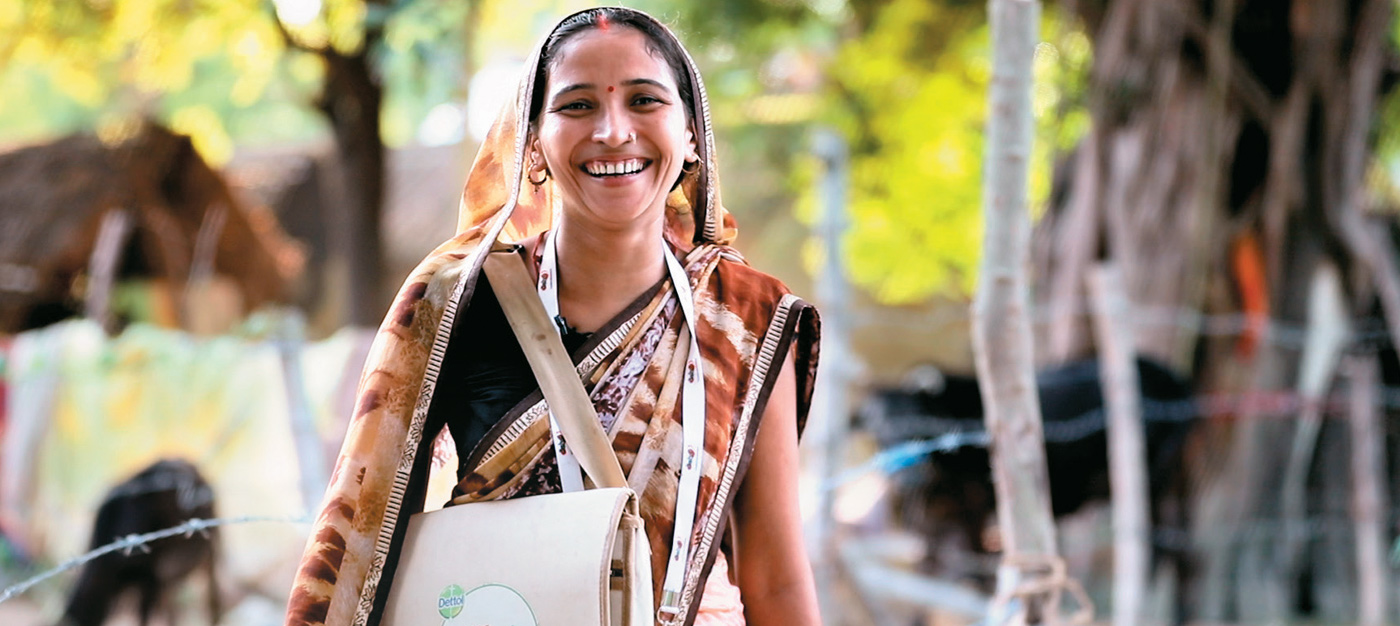
‘HOPE’ WITH A ‘PURPOSE’ FOR A HEALTHY INDIA
Reckitt Benckiser (RB)
As the global leader of health, hygiene and home, Reckitt Benckiser (RB) have
made it their responsibility and purpose to help people live healthier lives.
The firm works with many partners who have played a critical role in executing
the vision and mission of RB in India. In 2016, along with its three partners –
Pehel, the Corporate Social Responsibility (CSR) arm of Jagaran, GIZ and
Intellecap – the mega initiative ‘Asha’ (Project Hope) was launched by RB.
In addition, XSEED and Butterfly Edufield have joined hands with RB India to
develop educative behaviour change communication games along with Dr. Kalam for
their Dettol BSI School Curriculum Programme. RB closely works with the All
India Imam Organisation, thereby taking forward the Dettol Hygiene Program and
making it part of the early learning curriculum in 5.5 lakh Madrasas. As a
result this initiative reached six crore kids across India.“Access to safe,
accessible, acceptable and affordable Hygiene and Sanitation facilities is a
basic human right. It is a right which everyone should be entitled to, yet it is
not enjoyed by everyone,” says Ravi Bhatnagar, Director External Affairs and
Partnerships AMESA, Reckitt Benckiser.
Reinstating the criticalty of CSR in the overall business strategy for a company
like Reckitt Benckiser RB, Ravi Bhatnagar adds, RB is a company that believes in
business with a ‘purpose’. They invest in the future, which means investing in
healthier lives and happier homes. This is the soul of what they call ‘purpose’
Project Hope is working towards bringing behaviour change interventions leading
to better uptake and sales, ensure financial sustainability with a focus on
rural areas.
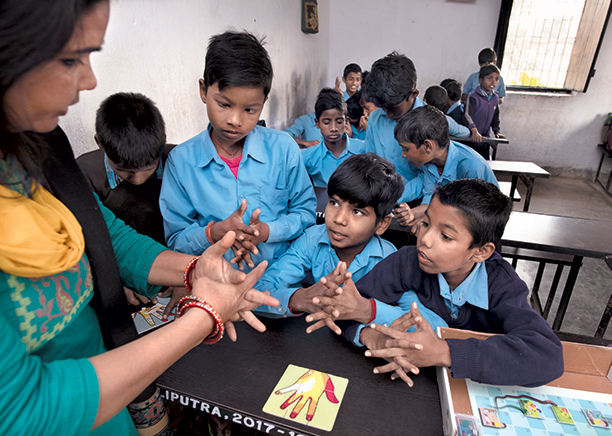
Next Generation learning the correct way to wash hands
The Aga Khan Foundation is implementing the School Hygiene Education Programme to address health-related issues – primarily focusing on water, sanitation and hygiene aspects – aligning with RB’s core WASH principles, among the students in 150 schools in the Phulwarishariff block in Patna, Bihar.It has transformed the lives of millions in India, as people have changed their approach towards hygiene and sanitation practices. Project Hope is a reflection of RB's commitment to integrate, support and compliment the Prime Minister Narendra Modi-led national Swachh Bharat Mission.
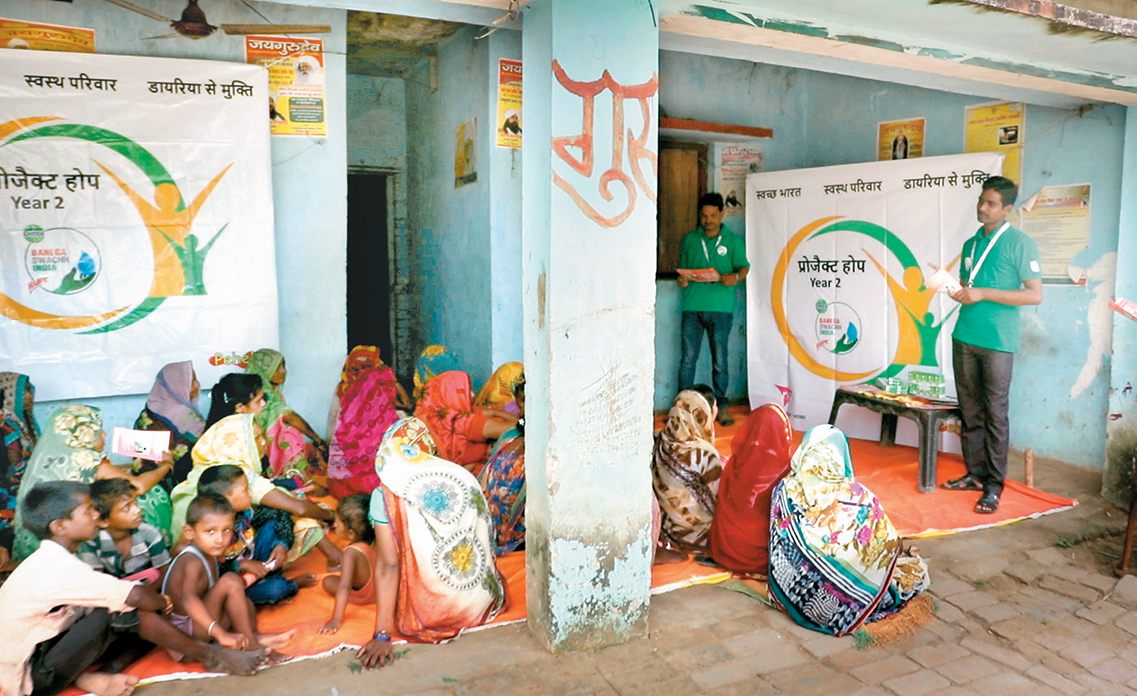
Initiating the behaviour change amongst the target group. An undivided attention, the foundation for success
The stellar role played by RB and its partners have contributed
immensely to empower women, especially in rural areas, to
significantly enhance their personal income, the local economy
and the national economy as a whole. Undoubtedly, it has been
a “Force for Good” in delivering a clean and “New India”.
This, in turn,
has helped improve public duce and hasten
eradication of diarrhea in the country.
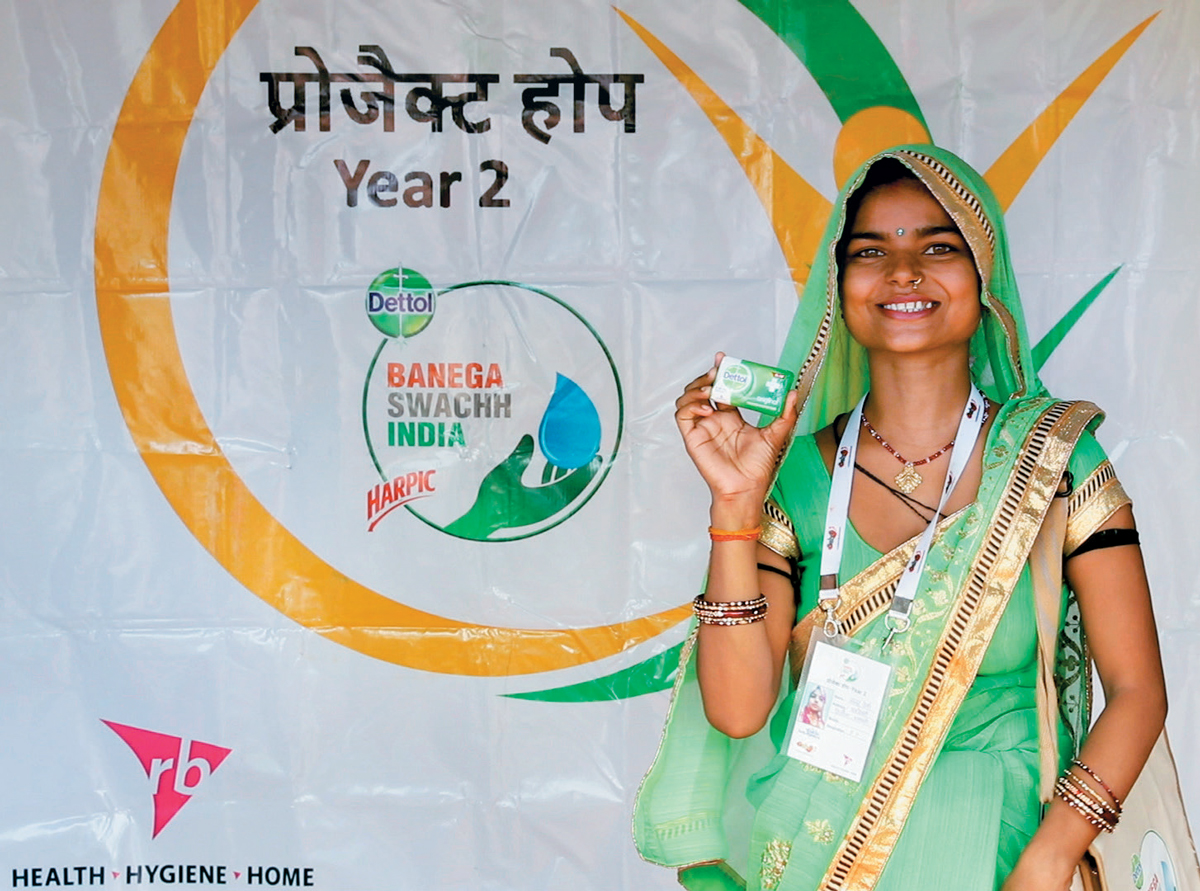
Asha Amma all geared up to create change and transform communities
Project Hope is central to two critical programs that are aligned
with RB’s committed ‘Purpose’.
The two programs are:
• Dettol Banega Swachh India (DBSI).
• WHO ( World Health Organization) 7 Point Program
Through the three programmes, it aims to bring about
1. Behaviour change interventions leading to better uptake and
sales.
2. Ensure financial sustainability.
3. Focus on rural areas
“Access to safe, accessible, acceptable and affordable Hygiene and Sanitation facilities is a basic human right. It is a right which everyone should be entitled to, yet it is not enjoyed by everyone,” says Ravi Bhatnagar, Director External Affairs and Partnerships AMESA, Reckitt Benckiser. Reinstating the criticalty of CSR in the overall business strategy for a company like Reckitt Benckiser RB, Ravi Bhatnagar adds, RB is a company that believes in business with a ‘purpose’. They invest in the future, which means investing in healthier lives and happier homes. This is the soul of what they call ‘purpose’, which others call CSR. So, to achieve all the above, the team works to invest timely, rightly and adequately.
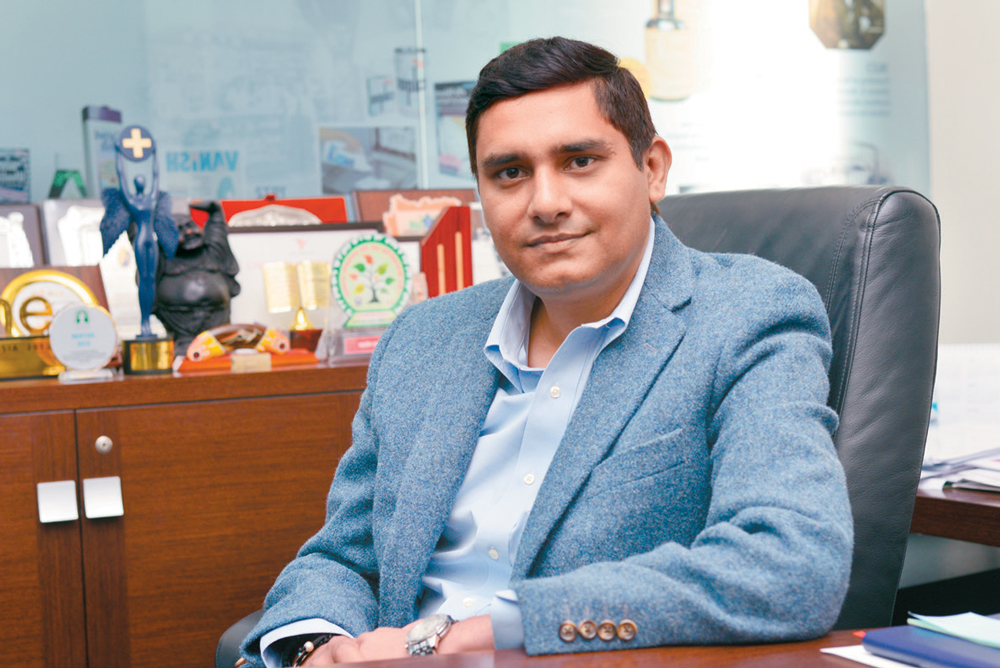
More importantly, rather than working alone, they work together, in the form of consortiums and matching grants. Their relationship partners are more than just a donors, it has moved beyond that. "We appreciate and value, the skill sets and money that our partners bring and invest with us for achieving a shared vision," says Bhatnagar. Under Dettol Banega Swachh India (DBSI) Swach School, Swach Ghar and Swach Gaon, RB’s flagship programme, the aim is to improve hygiene and sanitation standards of 100 million Indians by 2020.
This is in sync with the mission of Project Hope: Reduce diarrhea prevalence using a market-based sustainable model. Project Hope is working towards bringing behaviour change interventions leading to better uptake and sales, ensure financial sustainability with a focus on rural areas. RB, through Project Hope in partnership with ‘Save the Children’ programme, targets to reduce and eradicate the impact of diarrhea on children by 2020. It is using a market-based sustainable model to achieve behavioural change through a drive to improve hygiene and sanitation practices, product placement to ensure last mile availability of RB products and community empowerment to empower local individuals.
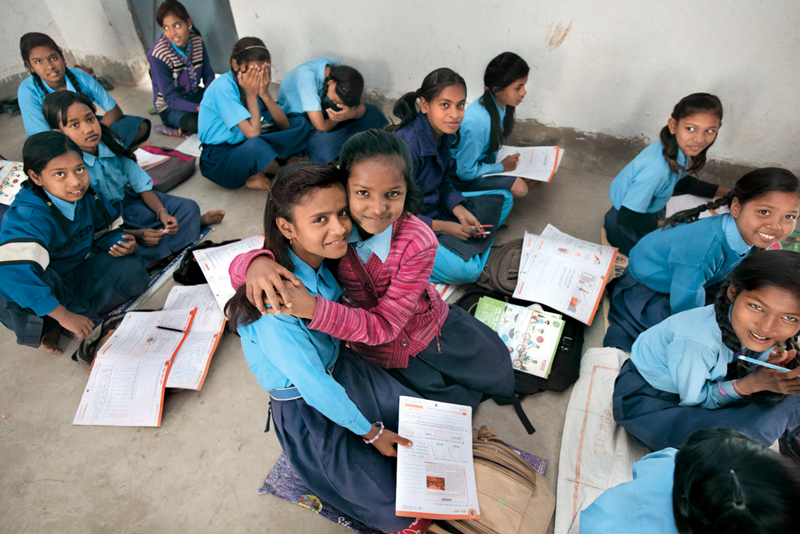
Reaching out to the target groups with the right message is an important aspect of the campaign
The initial foundation of Project Hope was laid in two states – Uttar Pradesh (four districts) and Uttrakhand (two districts). The project aims to drive a behaviour change campaign for product adoption to reduce mortality and morbidity in 110 villages out of 125 villages in the six districts. Another objective of this project is to reduce co-morbidity arising out of poor sanitation and hygiene practices.
Changing individual and collective behaviour
of the households
and villages that were targeted was the pre-defined key
performance indicator for Project Hope. It is built on six themes
– health benefits through hand wash and improved sanitation,
general hygiene, hand washing with soap (when to wash your
hands?), good sanitation and toilet cleaning (which will be
introduced soon).
"We are aiming to introduce programmes that can maintain
regularity in the messages that are disseminated," said Gaurav
Jain, Senior Vice President, AMESA, Health, RB at the India
Sanitation Conclave held in April 2018.
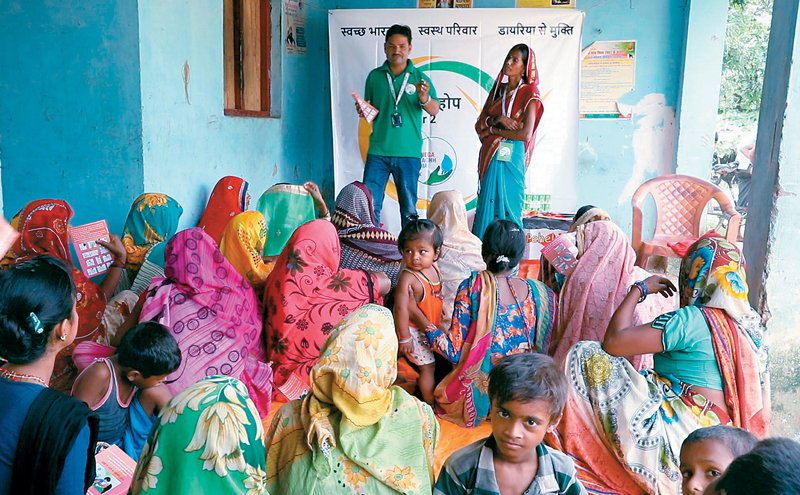
Touching lives through training on personal hygiene
The outreach campaign and numerous interventions helped RB and its partners in achieving the core objective of women empowerment – the real catalyst – to achieve various outcomes of pilot projects under Project Hope. It believes in empowering
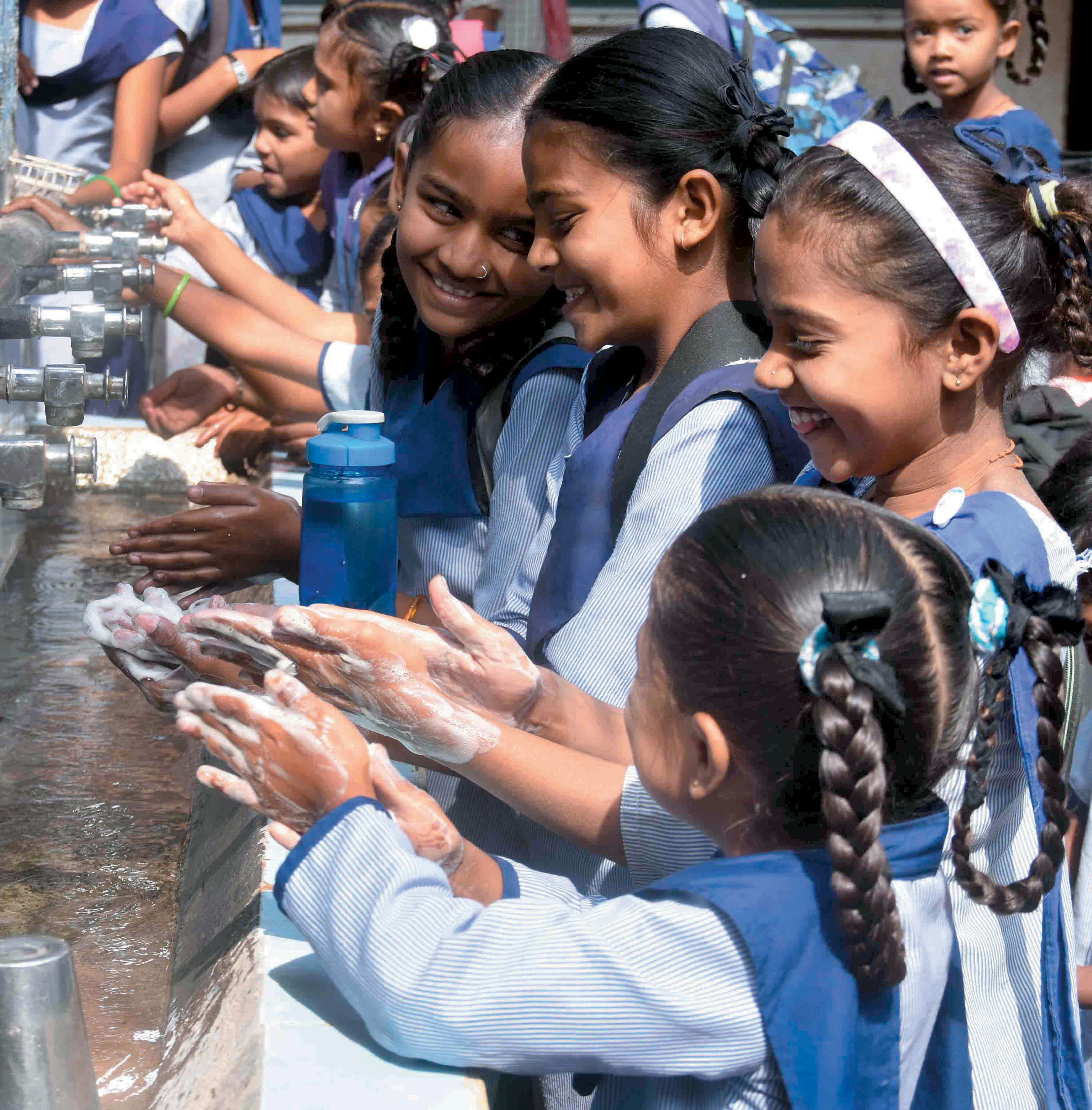
Changing face of rural economy; Asha Amma reaching out to a villager
women to transform hygiene, sanitation and public health, which will in turn boost the rural economy. “Asha Amma” (Women Health Workers) played the role of change leaders influencing adoption of good sanitation and hygiene practices using Asha Soap brand. During the outreach, 1,800 women participated in the Behaviour Change Communications Sessions, resulting in 80 per cent economic impact in the 125 villages. The pilot projects reached 70,000 households (covering approximately 2,80,000 people) as against the target of 60,000 households. During the period from January-July 2018, with three interventions in 70,000 households, 47,000 Asha Soaps were sold by 1,800 women. On an average, 40-50 percent of households bought the Asha Soap in the six districts of UP and Uttrakhand under the pilot project.
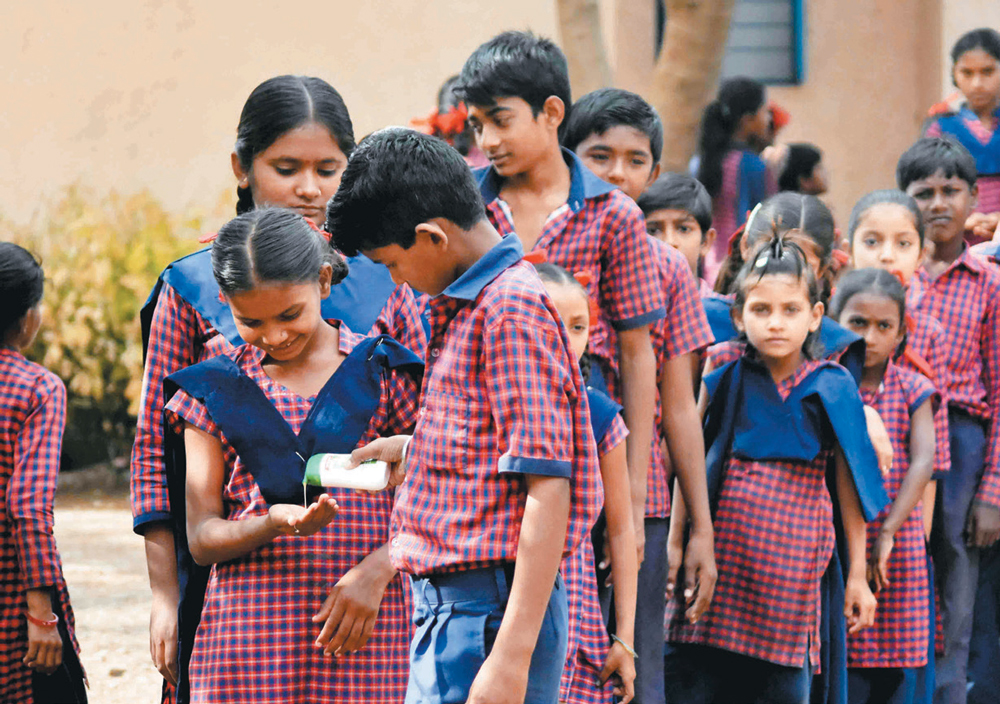
2,80,000Approx People(Pilot Projects) in two states |
90%Aware: importance of washing hands with soap. |
75%People used Asha soap once a day for hand wash |
60%Used soap on 3-5 from 1-2 times to wash hands |
50%Of people fixed a place to wash hands with soap. |
30%Better presence of Asha soap where “Asha Amma’ intervened |
25%Able to identify the long term benefits of using soap. |
25%Better participation by communities after campaign. |
21%Resulting in monthly compounded growth. |
Smt. Jagwanta, Woman Health Worker (Asha Amma), Gopalpur Village, Gilaula Block, Shrawsati, Uttar Pradesh A mother of four, she sold 200 Asha soaps per month for the last three months and is fondly called, “Asha Bahu” by the villagers. She is constantly motivated and motivates to work for the betterment of the village through the message of hand washing. Witnesses Smt Gudda Devi, Semriyawan village, Prayagpur Block, Bahraich, Uttar Pradesh: She suffered from severe skin rash and was motivated by Asha Amma to use the Asha soap. Devi consulted a local health worker and she also suggested the use of soap and today she is happy after using it for two months, as her skin is soft and moisturised and the itching has also disappeared.
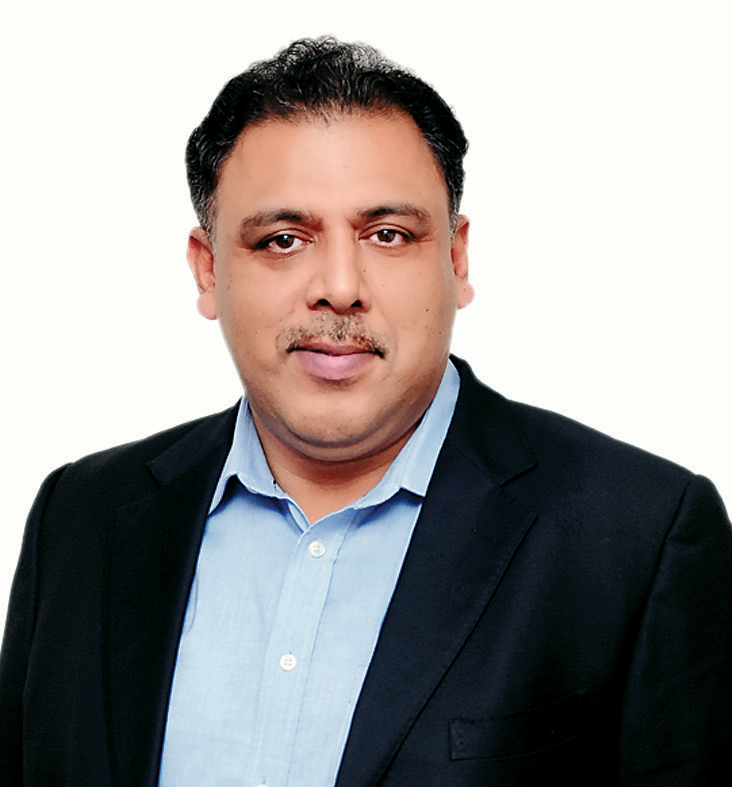
Gaurav Jain
Senior Vice President, AMESA, Health, Reckitt Benckiser
WHAT NEXT AFTER A SHARED VISION?
Sometimes the visions are just attractive frames to be
hung in the office spaces. But it is important that the
visions are followed and the dreams are chased. So when
our partners show the inclination and commitment to
chase a common dream, mission and goals, there are
good chances that the total investments for a ‘purpose’
becomes big and bigger.
CAN YOU SHARE AN EXAMPLE(S) OF SUCH A
DREAM?
Dettol Banega Swachh India programme is one, where
we will go to three lakh schools across the country. In
this journey, we are supported by Aga Khan Foundation,
Learning Links Foundation and All Indian Imam
Organisation, where we are targeting to reach out to
more than 5.5 lakh Madarsas across India in the next
three years. RB believes in making it big, sustainable and
where we can measure the impacts.
It is not about the number of kids you are reaching
out to through the programs, but it is about the fall in
diarrhea rates in the kids who have been exposed to the
intervention. It is about the change in school attendance
rates and change in the body mass index of boys and
girls. Our efforts should help in reduction of personal
disposable incomes of families in treatment of illnesses
that are preventable.
So, our framework is built around prevent, promote
and treat. The foundation is based on the principle of
prevention of disease and promotion of good health. If
these two pillars are taken care of, there are good chances
that occurrence of many preventable diseases among the
young children and adolescents will reduce by a large
number, with behavioural change communication.
HOW DOES YOUR CSR EFFORT HELP IN SUPPORTING
SIMILAR GOVERNMENT INITIATIVES?
So the overall load on programs like ‘Ayushman Bharat’,
which is also more on treatment part, will come down.
The prime role of state or centre today is not just working
on the GDPs and credit ratios. But they have started
thinking ways of igniting body, mind, spirits and soul –
the latest example being yoga.
The kids and adults who do yoga have a regular
routine, which benefits in prevention of new age diseases
(non-communicable diseases) like obesity and diabetes.
So all this is working towards an enabling environment,
where there is a public-private participation and patient
participation. We are looking at treating, both the types
of patients, those who are at the border line and those
who are probable patients.




